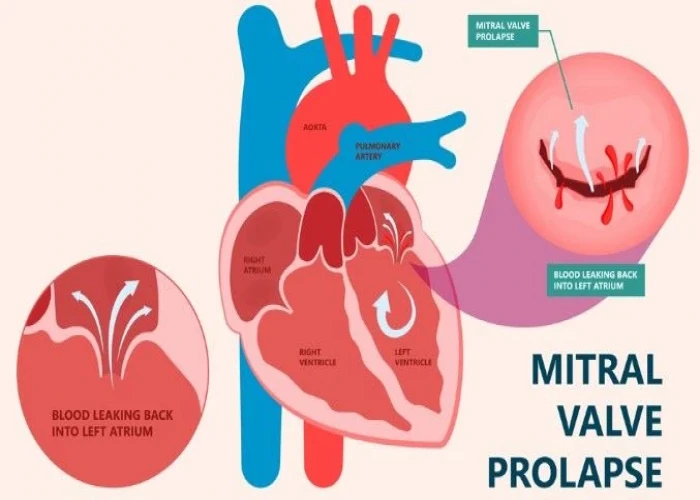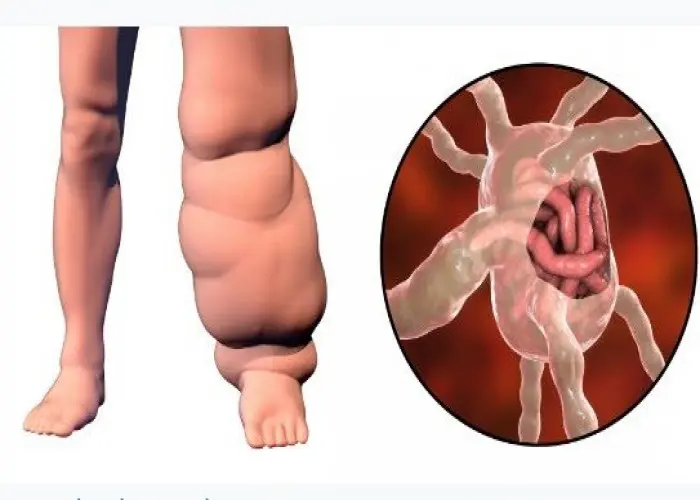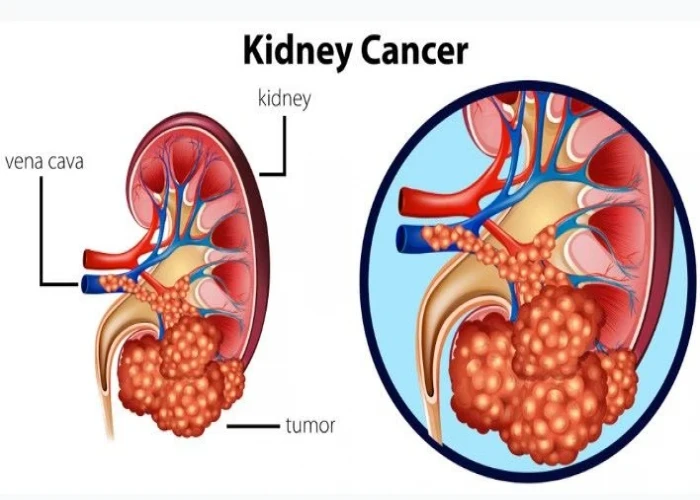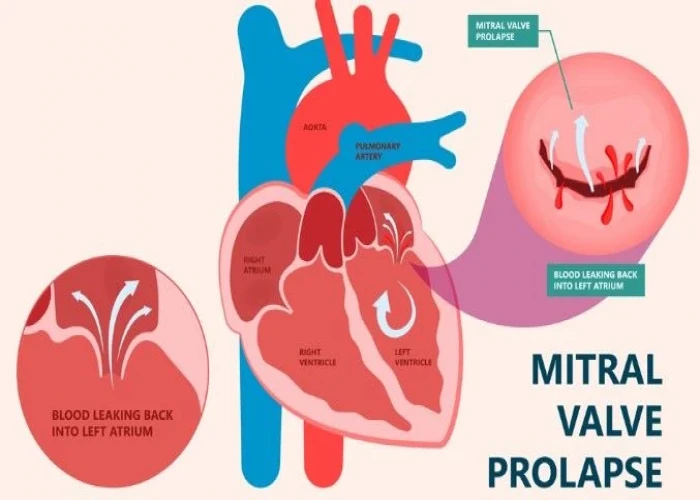 Welcome
Welcome
“May all be happy, may all be healed, may all be at peace and may no one ever suffer."
Mitral valve regurgitation

Mitral valve regurgitation (MR), also known as mitral insufficiency, is a condition in which the mitral valve of the heart does not close properly, causing blood to leak back into the left atrium when the heart contracts.
MR can be caused by a variety of factors, including congenital defects, damage from infections or rheumatic fever, heart attacks, and age-related wear and tear. Symptoms of MR may include shortness of breath, fatigue, irregular heartbeat, and swelling in the legs or abdomen. In some cases, people with MR may not experience any symptoms at all.
Diagnosis of MR typically involves a physical exam, imaging tests such as echocardiography, and other diagnostic tests to determine the underlying cause of the condition. Treatment for MR may depend on the severity of symptoms and the underlying cause of the condition. In some cases, medications such as diuretics, blood pressure medications, or blood thinners may be prescribed to manage symptoms or prevent complications.
In more severe cases of MR, surgery or other procedures may be necessary to repair or replace the mitral valve. Treatment options may include mitral valve repair surgery, in which the damaged valve is repaired, or mitral valve replacement surgery, in which the damaged valve is replaced with an artificial valve.
With appropriate treatment and management, many people with MR are able to live active and healthy lives. Regular medical care and monitoring are important for maintaining heart health and preventing complications.
Research Papers
Disease Signs and Symptoms
- Irregular heart sound (heart murmur)
- Irregular heartbeats (arrhythmia)
- Shortness of breath (dyspnea)
- Rapid fluttering heartbeats (palpitations)
- Swollen (Edema)
- Shortness of breath, especially with exertion or when lying down
Disease Causes
Mitral valve regurgitation
To understand the causes of mitral valve disease, it may be helpful to know how the heart works.
The mitral valve is one of four valves in the heart that keep blood flowing in the right direction. Each valve has flaps (leaflets) that open and close once during each heartbeat. If a valve doesn't open or close properly, blood flow through the heart to the body can be reduced.
In mitral valve regurgitation, the valve flaps don't close tightly. Blood leaks backward when the valve is closed, making it harder for the heart to work properly.
If mitral valve regurgitation is due to problems with the mitral valve, the condition is called primary mitral valve regurgitation.
If a problem or disease affecting other areas of the heart cause a leaky mitral valve, the condition is called functional or secondary mitral regurgitation.
Possible causes of mitral valve regurgitation include:
- Mitral valve prolapse. In this condition, the mitral valve's flaps bulge back into the left upper heart chamber (atrium) when the heart squeezes (contracts). This common heart problem can prevent the mitral valve from closing tightly and cause blood to flow backward.
- Rheumatic fever. Rheumatic fever is a complication of untreated strep throat. Rheumatic fever can damage the mitral valve, leading to mitral valve regurgitation early or later in life. If rheumatic fever causes mitral valve disease, the condition is called rheumatic mitral valve disease. Rheumatic fever is rare in the United States.
- Heart attack. A heart attack can damage the area of the heart muscle that supports the mitral valve. If heart attack damage is very extensive, the event can cause sudden and severe mitral valve regurgitation. A leaky mitral valve caused by a heart attack is called ischemic mitral regurgitation.
- Heart problem present at birth (congenital heart defect). Some people are born with heart structure problems, including damaged heart valves.
- Thickening of the heart muscle (cardiomyopathy). Cardiomyopathy makes it harder for the heart to pump blood to the rest of the body. The condition can affect mitral valve function and may lead to regurgitation. Types of cardiomyopathy linked to mitral valve regurgitation include dilated cardiomyopathy and hypertrophic cardiomyopathy.
- Damaged tissue cords. Over time, the pieces of tissue that hold the flaps of the mitral valve to the heart wall may stretch or tear, especially in people with mitral valve prolapse. A tear can cause blood leakage through the mitral valve suddenly and may require mitral valve repair surgery. A chest injury also can cause rupture of the cords.
- Endocarditis. The mitral valve may be damaged by an infection of the lining of the heart (endocarditis) that can involve heart valves.
- Radiation therapy. Rarely, radiation therapy for cancer that is focused on the chest area can lead to mitral valve regurgitation.
Disease Prevents
Disease Treatments
The goals of mitral valve regurgitation treatment are to improve heart function while reducing signs and symptoms and avoiding future complications. Some people, especially those with mild regurgitation, might not need treatment. Your health care provider will consider your symptoms and stage of regurgitation, among other things, when discussing treatment options with you.
Treatment of mitral valve regurgitation may include:
- Healthy lifestyle changes
- Regular monitoring by a health care provider
- Medications to treat symptoms and prevent complications, such as blood clots
- Surgery to repair or replace the mitral valve
A doctor trained in heart disease (cardiologist) typically provides care for people with mitral valve regurgitation. If you have mitral valve regurgitation, consider being treated at a medical center with a multidisciplinary team of health care providers trained and experienced in evaluating and treating heart valve disease.
Medications
Medications may be needed to reduce mitral valve regurgitation symptoms and to prevent complications of heart valve disease.
Types of medications that may be prescribed for mitral valve regurgitation include:
- Diuretics. Sometimes called water pills, this type of medication reduces or prevents fluid buildup in the lungs and other parts of the body.
- Blood thinners (anticoagulants). If you have atrial fibrillation due to mitral valve disease, such as mitral valve regurgitation, your health care provider may recommend blood-thinning drugs to prevent blood clots. Atrial fibrillation increases the risk of blood clots and strokes.
- Blood pressure medications. High blood pressure (hypertension) makes mitral valve regurgitation worse. If you have mitral valve regurgitation and hypertension, your health care provider may prescribe medication to lower blood pressure.
Surgery or other procedures
A diseased or damaged mitral valve might eventually need to be repaired or replaced, even if you don't have symptoms. Surgery for mitral valve disease includes mitral valve repair and mitral valve replacement. Your health care provider can discuss the risks and benefits of each type of heart valve with you to determine which valve may be best for you.
If you need surgery for another heart condition, a surgeon might perform mitral valve repair or replacement at the same time as that other surgery.
Mitral valve surgery is usually done through a cut (incision) in the chest. Surgeons at some medical centers sometimes use robot-assisted heart surgery, a minimally invasive procedure in which robotic arms are used to do the surgery.
Mitral valve repair
Mitral valve repair saves the existing valve and may preserve heart function. Whenever possible, mitral valve repair is recommended before considering valve replacement. People who have mitral valve repair for mitral regurgitation at an experienced medical center generally have good outcomes.
During mitral valve repair surgery, the surgeon might:
- Patch holes in a heart valve
- Reconnect the valve flaps
- Remove excess tissue from the valve so that the flaps can close tightly
- Repair the structure of the mitral valve by replacing cords that support it
- Separate valve leaflets that have fused
Other mitral valve repair procedures include:
- Annuloplasty. A surgeon tightens or reinforces the ring around the valve (annulus). Annuloplasty may be done with other techniques to repair a heart valve.
- Valvuloplasty. This catheter procedure is used to repair a mitral valve with a narrowed opening. Valvuloplasty might be done even if you don't have symptoms. The surgeon inserts a catheter with a balloon on the tip into an artery in the arm or groin and guides the catheter to the mitral valve. The balloon is inflated, widening the mitral valve opening. The balloon is deflated, and the catheter and balloon are removed.
- Mitral valve clip. In this procedure, a doctor specializing in heart diseases (cardiologist) guides a catheter with a clip on its end to the mitral valve through an artery in the groin. The clip is used to improve the closure of the mitral valve leaflets and to reduce the amount of regurgitation. This procedure is an option for people who have severe mitral valve regurgitation or who aren't a good candidate for mitral valve surgery.
Mitral valve replacement
During mitral valve replacement, the surgeon removes the mitral valve and replaces it with a mechanical valve or a valve made from cow, pig or human heart tissue (biological tissue valve).
Sometimes, a heart catheter procedure is done to place a replacement valve into a biological tissue valve that no longer works well. This is called a valve-in-valve procedure.
If you had mitral valve replacement with a mechanical valve, you'll need to take blood thinners for life to prevent blood clots. Biological tissue valves break down (degenerate) over time and usually need to be replaced.
Disease Diagnoses
Disease Allopathic Generics
Disease Ayurvedic Generics
Disease Homeopathic Generics
Disease yoga
Mitral valve regurgitation and Learn More about Diseases

Filaria

Addison's disease

Dry eyes

Deviated septum

Teen depression

Stretch marks

Black hairy tongue

Kidney cancer
mitral valve regurgitation, মিত্রাল ভালভ পুনর্গঠন
To be happy, beautiful, healthy, wealthy, hale and long-lived stay with DM3S.
